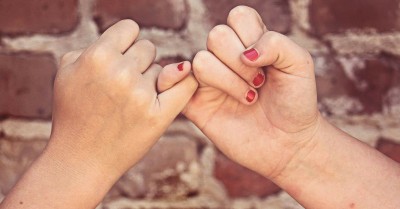The Kindness Curriculum presents activities designed to build the attributes of empathy, gratitude, perspective, honesty, self-compassion, self-acceptance, humility, collaboration, mindfulness, meditation, trust, affiliation and humour for all Australian children and students.
The Kindness Curriculum is a collaborative project between Kaplan Australia and The Kindness Factory which was founded by Kath Koschel, a former professional athlete who has taught herself to walk on three separate occasions.
The Kindness Curriculum has a range of activities that support young children to explore 12 attributes of kindness building agency, initiate their own learning and develop their self-identity.
The 12 Attributes and Activities include:
COLLABORATION - Assigning classroom jobs gives young children responsibility and a sense of belonging in their class community. Collaborating to decide and assign jobs helps to build the classroom community and a sense of agency in young children.
COMPASSION - The simple act of giving and receiving hugs is a demonstration of kindness, compassion and empathy. ‘Share a hug’ is an activity for young children to show care for others and acknowledge their feelings allowing them to wrap their arms around someone or something.
EMPATHY - The ability to build an understanding of what others are feeling is a valuable life skill for children to possess. Recognising and naming emotions is an important step in the early years to developing empathy and regulating emotions. Feelings cards can be used in a myriad of games to identify and label emotions that children feel in their days to day life.
GRATITUDE - Thankfulness is a socio-emotional habit that young children explore from an early age. Creating a gratitude tree helps young children express appreciation for the people and events that influence their lives. By understanding thankfulness young children can build sensitivities towards the feelings of others, develop empathy and other life-skills.
HONESTY- This activity uses true and false cards to help young children decipher the difference between fact and fiction. Humour and exaggerated stories help model the differences between the two concepts.
HUMILITY - Young children may not have the vocabulary to express understandings of humility but using puppets will give them the opportunity to explore actions, scenarios and feelings.
HUMOUR- Young children love simple visual and verbal humour such as silly antics, songs, games, funny rhymes and stories. ‘Funny’ Show and Tell encourages children to share an item or story, song or rhyme that their friends will find funny.
MINDFULNESS MEDITATION - The Kindness Curriculum encourages the inclusion of ‘mindfulness meditations’ in daily activities. Children and students can engage in the practices independently or collectively to experience the current moment, ‘be present’ and integrate that awareness into everyday life. The activities are suitable for all ages!
PERSPECTIVE - Duck rabbit by Amy Krouse Rosenthal is a book for young children narrated by two unseen voices, each taking an opposing viewpoint. This book is a starting point in the prior to school years for discussing the value of perspective-taking as children debate whether the character is a duck or if it a rabbit? The correct answer is never given making this is a great opportunity to talk about how two people can think differently about something, and both be right!
POSITIVITY - Acknowledging positive experiences and achievements has a major impact on positive thinking. A ‘You Did It’ jar provides opportunities for children, parents/caregivers and teachers to recognise the accomplishments of young children.
SELF-ACCEPTANCE - Young children build understandings of feelings and emotions from birth. The ’Feelings cards’ provide children opportunities to explore, identify, label and talk about a range of emotions using visual cues to build vocabulary and label everyday emotions contributing to well-being.
TRUST - Good relationships early in life help children to connect with others, build positive friendships and support children to self-regulate their emotions. Trust is a key component of relationships. Building trust with young children requires collaborative action between teachers and caregivers.
For activities based on the attributes above: Kindness Activities
“The activities are also fully adaptable to ensure that teachers can modify to meet their children’s needs, interests and specific contexts,” explains Kath.
For more detailed information: Kindness Curriculum
Reference:
Cela, Amplify Magazine, November 2020



 Here is the list of the EYLF Learning Outcomes that you can use as a guide or reference for your documentation and planning. The EYLF
Here is the list of the EYLF Learning Outcomes that you can use as a guide or reference for your documentation and planning. The EYLF The EYLF is a guide which consists of Principles, Practices and 5 main Learning Outcomes along with each of their sub outcomes, based on identity,
The EYLF is a guide which consists of Principles, Practices and 5 main Learning Outcomes along with each of their sub outcomes, based on identity, This is a guide on How to Write a Learning Story. It provides information on What Is A Learning Story, Writing A Learning Story, Sample
This is a guide on How to Write a Learning Story. It provides information on What Is A Learning Story, Writing A Learning Story, Sample One of the most important types of documentation methods that educators needs to be familiar with are “observations”. Observations are crucial for all early childhood
One of the most important types of documentation methods that educators needs to be familiar with are “observations”. Observations are crucial for all early childhood To support children achieve learning outcomes from the EYLF Framework, the following list gives educators examples of how to promote children's learning in each individual
To support children achieve learning outcomes from the EYLF Framework, the following list gives educators examples of how to promote children's learning in each individual Reflective practice is learning from everyday situations and issues and concerns that arise which form part of our daily routine while working in an early
Reflective practice is learning from everyday situations and issues and concerns that arise which form part of our daily routine while working in an early Within Australia, Programming and Planning is reflected and supported by the Early Years Learning Framework. Educators within early childhood settings, use the EYLF to guide
Within Australia, Programming and Planning is reflected and supported by the Early Years Learning Framework. Educators within early childhood settings, use the EYLF to guide When observing children, it's important that we use a range of different observation methods from running records, learning stories to photographs and work samples. Using
When observing children, it's important that we use a range of different observation methods from running records, learning stories to photographs and work samples. Using This is a guide for educators on what to observe under each sub learning outcome from the EYLF Framework, when a child is engaged in
This is a guide for educators on what to observe under each sub learning outcome from the EYLF Framework, when a child is engaged in The Early Years Learning Framework describes the curriculum as “all the interactions, experiences, activities, routines and events, planned and unplanned, that occur in an environment
The Early Years Learning Framework describes the curriculum as “all the interactions, experiences, activities, routines and events, planned and unplanned, that occur in an environment


